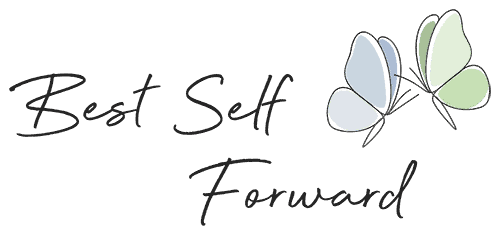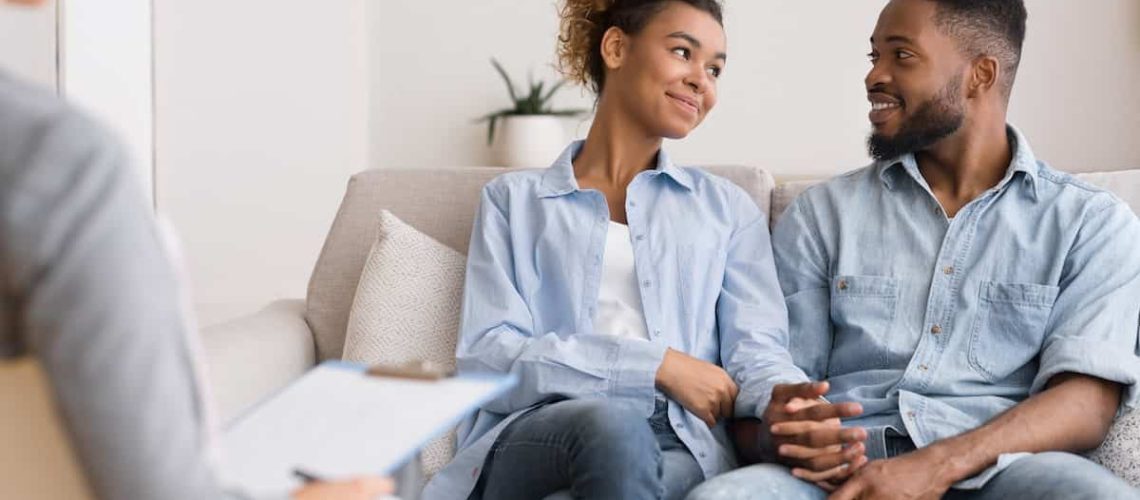First, we’d like to congratulate you for searching out information on couples counselling.
By being here you have already taken a big step into your journey of personal and relational growth. This is an essential first step in any journey and should be commended!
It is understandable if you are finding the process of researching couples counselling and finding the right counsellor stressful. There is so much information, misinformation, and so many different counsellors to choose from. Sorting through all of that can be overwhelming.
That’s why we put together this guide. We hope to demystify couples counselling and help you answer some of the common questions you’ll consider on your journey to finding the right couples counsellor for your relationship.
Let’s get started!
Common Couples Counselling Myths Dispelled
Couples counselling, and therapy in general, have been misunderstood by many for decades. For many, our perceptions of treatment are shaped by what we see in film and television. So, let’s start the guide by dispelling some of the common misconceptions you might have about couples counselling.
Myth 1: Couples counselling is the last thing you try before divorce
While many have historically used couples counselling in this way, this is not the only use of relationship counselling. Couples counselling can help you learn effective communication skills, deepen your connection, and increase your ability to work together in difficult situations. Like any maintenance or repair, the earlier you start with something, the cheaper and easier the fix. Having said that, If this is where your relationship is, you should still try couples counselling prior to making any significant life decisions.
Myth 2: Couples counselling is only for married couples
There’s a reason we use couples counselling rather than marriage counselling. Couples counselling is effective for anytype of relationship, and if marriage is something you are considering, it can help you decide if it is right for you. We’ll talk more about when you should consider couples counselling a little later.
Myth 3: My couples counsellor and my partner are going to gang up against me
It can be hard hearing from your partner that they feel the need for an outside person to peer into your relationship. Our natural fears are that our partner will somehow use the therapists to force us to change or only listen to their side. But this could not be further from the truth. A therapist skilled in couples counselling will treat the relationship as a whole, not an individual. Couples counselling is NOT about finding fault or blaming a specific person.It’s about discovering how the current dynamics are causing a rupture in your relationship and what each of you can do differently to change them.
Myth 4: Couples counselling is only going to make us fight more
Couples counselling will help you reflect on, process, and talk about what is not working in your relationship and why. These conversations can definitely at times feel intense and difficult, but the result is most often a deeper understanding, connection, and intimacy. Conflict is never the problem. How it’s handled and dealt with is what leads to rupture and tension in the relationship. Fighting aimlessly, sweeping things under the rug, or avoiding talking about the issues are equally damaging to your bond. Couples therapy helps couples learn how to stop avoiding conflict or aimlessly fighting and instead actually talk about what really matters most in a constructive and effective manner.
Is Couples Counselling Effective?
Of course, many factors play into the effectiveness of couples counselling likethe therapist, their knowledge and experience, how effectively they use their knowledge and tools with the couple, the relationship between the therapist and the couple, and most importantly, how dedicated and committed the couple is to improving their relationship. Furthermore, couples that wait until severe problems have occurred have a lower chance of success than those who began earlier. But taken as a whole, couples counselling can be viewed as highly effective in helping couples strengthen their relationship, deepen their connection and increase their overall relationship satisfaction.
A research study evaluating the effectiveness of Gottman’ method found that couples who received Gottman’s therapy showed a noticeable increase in their relationship satisfaction, positive emotions, intimacy and connection. Another study found Emotionally-Focused Therapy to be successful in over three-quarters of patients, and this sample included couples from high-stress professions, parents of chronically ill children, and infertile couples.
Research also indicates that couples counselling is as effective, if not more effective, than individual therapy. This is partly due to the fact that there is a lot of individual work that takes place in couples therapy. Each partner works on overcoming the obstacles that holds them back from being the partners they aspire to be. Furthermore, as couples gain the skills and knowledge necessary to improve their relationship they indirectly end up improving all their relationships leading to a greater overall relationship and life satisfaction.
When Should I Begin Couples Counselling?
One of the most common questions couples will ask is when they should begin couples counselling?
Historically, many couples only sought couple counselling as a last resort effort to save their relationship. According to Dr. John Gottman, most couples will wait six years of being unhappy before seeking couples counselling.
Imagine if you neglected a leaky roof for six years before seeking a solution. Instead of replacing one tile, you might need an entirely new roof. Similarly, the earlier you begin couples counselling, the more effective it is.
Ideally, couples will proactively seek couples counselling before problems show up in their relationship. Taking a proactive approach helps build a strong foundation and avoid unnecessary future pain. Life often is less than ideal, however, so if you are wondering if you should or should not seek couples counselling it is likely time for you to reach out to one.
Remember, the longer you wait, the bigger the baggage you will bring with you to therapy. You will need time to unpack and heal from this baggage before you can start building a new foundation and learn the skills necessary for both of you to create a healthy and thriving relationship together. By starting early, sessions can be spent laying the foundation for healthy communication that would keep those issues from ever developing in the first place.
What Type Of Couples Counselling is Right for Me?
Couples counselling has changed a lot over the decades.
There are many branches of couples counselling and choices over how your sessions take place.
Which method is the best?
When researching couples counselling services, you’ll often hear about their training in this or that method. Examples include The Developmental Model of Couples Therapy, Emotionally Focused Therapy (EFT), The Gottman Method, and Imago Relationship Therapy, among others. These are different toolsets a couples counsellor might use to help guide and direct your sessions.
Some therapists might focus on one specific method or use a combination of a few to help you reach your desired results. The nuances of each method are a bit more than the scope of this guide, but there is a lot of information available online.Ultimately, regardless of what method a therapist uses, finding someone that you connect well with and are able to trust can be more impactful than the specific strategies or tools they use.I would also be happy to talk to you directly about why some methods might be better than others for different needs.
In-person or online counselling?
Also, today you have a choice on how your couples counselling sessions take place. You can still always come into the office for a traditional couples counselling session. Or you can also opt for online counselling. If you haven’t heard of or considered online counselling, we have a helpful breakdown of what it is and its pros and cons here.
In Conclusion
Relationships require work, commitment, and effort.
They require us to be willing to be vulnerable and look closely at ourselves and our contributions. We must stay open to stretching beyond our comfort zones and change what is not effective in our ways. In successful relationships, we have the strength to admit we are not perfect, and neither are our partners, but together we can grow ourselves and our relationship to what is perfect for each of us.
Don’t ever feel ashamed for considering couples counselling. Every relationship needs a bit of help from time to time. Sometimes that assistance comes from an older couple, family member, or friend who provides a helpful tip or listening ear. And sometimes, we need a bit of outside help.
Thankfully, changes in society’s views are allowing more couples to see the benefits of couples counselling to strengthen their relationship for the future.
We hope we’ve cleared some common misconceptions and questions many have about couples counselling. There’s a lot of information out there to wade through, and if you still feel overwhelmed, please reach out to us, and we’ll be happy to talk to you directly.
The most important thing is that you feel comfortable talking openly with your therapist about any apprehensions you might have and the goals you have for your relationship.
We wish you the best in your relationship!

